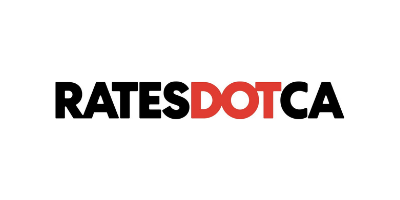While death is a heavy and unpleasant subject to think about, it becomes a topic of concern when you have a family that is financially dependent on you. Fortunately, you can financially protect the ones you love by purchasing life insurance.
Life Insurance Explained
Life insurance is a product that is offered by banks and insurance companies alike. When you purchase life insurance, you create a contract between yourself and the company which dictates that they will pay an agreed-upon sum to your beneficiary for a premium. The death benefit (money your beneficiary receives if you die) your beneficiary (usually a person who is financially dependent on you such as your children and/or spouse) receives is usually meant to cover the cost of their basic needs like rent/mortgage, food, debt, funeral costs and occasionally post-secondary education expenses or retirement funds for your spouse.
How Does it Work?
Depending on the coverage you need, you will pay a monthly fee or premium to your insurance company until your contract ends or until you pass away, whichever happens first. The contract will detail the amount of money your beneficiaries will receive. The money they receive will be tax-free and can be used according to their needs. However, be sure to always keep up with your insurance payments as missed payments can lead to your policy being cancelled or even your family not being covered if you pass.
What Are The Different Types of Life Insurance Available?
There are several types of life insurance available in Canada. No matter your needs, there’s life insurance out there for you.
Term Life Insurance
Term life insurance is a type of life insurance that covers you for a certain number of years. The number of years is adjustable and can be anything from 5, 10, 15, 20 years or to the age you retire. During this time, you would make monthly payments to your insurer until the policy ends.
If you die during your policy, the insurer will pay a tax-free lump-sum payment to your beneficiaries. If your term life insurance policy ends before you die, you’ll have the choice to renew it or simply have the policy end. However, when the policy ends your coverage ends and no payment will be made in the event that you pass away.
Permanent Life Insurance
Permanent life insurance is a life insurance policy that covers you for life. No matter what age you may pass, your beneficiaries will receive a tax-free lump-sum payout. While the payout is guaranteed with permanent life insurance, the premiums are much higher than that of term life insurance.
In Canada, there are 4 different permanent life insurance policies you can get:
- Term 100 – This is the simplest form of permanent life insurance. It involves fixed monthly payments till you turn 100 and you are guaranteed a lump-sum payout when you die.
- Whole Life Insurance – Whole life insurance is like an investment as you accumulate cash value over time. It offers the same thing as a Term 100 policy except for a portion of the premium you pay is added to your cash value which earns interest. The rate is determined by your insurer. If you decide to cancel early, you can receive this cash value payout.
- Universal Life Insurance – Similar to whole life insurance, universal life insurance has a cash value that earns interest. There are three types of universal life insurance: Guaranteed universal life insurance, indexed universal life insurance and variable universal life insurance. Depending on which you choose, your cash value growth will vary. For example, the indexed universal life insurance cash value growth is based on the stock index.
- Variable Life Insurance – This permanent life insurance works like the rest except its cash value is invested in stocks, bonds, and mutual funds.
Who Needs Life Insurance?
In general, those who have a lot of debt or people who financially rely on them should consider life insurance. Life insurance can ensure your loved ones are financially taken care of and aren’t burdened by your debts after you’ve passed.
- Term life insurance is great for younger individuals who have a lot of debt that would need to be paid off if they suddenly died. It is also the most affordable option that offers good coverage for a period of time.
- Permanent life insurance on the other hand is better for individuals who need to be covered for life as they have people who are financially dependent on them such as their children and/or spouse.
Steps to Get a Life Insurance Policy
To simplify the process of getting a life insurance policy, we’ve broken it down into 3 simple steps.
- Compare quotes – You can get quotes by reaching out to different insurance providers or by working with a life insurance broker. By comparing quotes you can choose a life insurance policy that best meets your needs.
- Choose Your Coverage – After settling on a policy, you’ll have to determine how much coverage you need. You’ll also be asked to provide certain documentation about your health, income, job, and other personal details.
- Get Insured – Once you’ve provided all your information and settled your coverage needs, you’ll be given a premium that you must pay monthly or sometimes annually. Once your payments begin, you’ll be insured.
How Much Should a Life Insurance Policy Cost?
The cost of your life insurance policy will vary based on a number of factors including personal information such as your age, gender, job, lifestyle, health, and family medical history. The details of your life insurance policy will also affect the cost such as the coverage amount and term length. Due to the wide range of factors that can affect your policy’s cost, it is important that you research and compare quotes before settling with any one insurer.
Deciding How Much Coverage to Get
While it may be tempting to get a policy that provides the ultimate coverage, your wallet may not be able to handle it. As such, it is important to ask yourself how much coverage do you need?
- How much and what types of debt do you have?
- What are your recurring living expenses?
- Do you have any savings or investments your family can rely on?
- How will your family cover the cost of your funeral?
- Do you need a special fund for your child’s future education?
Asking yourself these questions will help you determine how much coverage you need. However, in general, it is recommended that your coverage amount is approximately 10 times your annual income. This would help cover your family’s day-to-day living expenses. In addition to that, you should consider which assets you want to protect such as your house or car. You should also consider how much money you’d want your children or spouse to have for education or retirement purposes.
For example, if you’d like to cover:
- Your mortgage of $400,000
- Your child’s future education ($100,000)
- Your annual salary of $50,000 (50,000 x 10 = 500,000)
You’ll need a life insurance policy of $1 million (400,000+100,000+500,000).
Best Life Insurance Providers in Canada
Emma
Emma is an online life insurance platform that was created in response to the challenges and lack of life insurance options available to women and young families. Through it, you can compare rates across multiple providers with a single application. Simply fill out Emma’s application form regarding your health and coverage needs to receive your quotes today.
PolicyMe
PolicyMe is an online insurance solution that offers Canadians access to affordable term life and critical illness insurance. Their underwriting process has been simplified to provide instant quotes and policies. PolicyMe offers some of the lowest rates in Canada, roughly 5%-10% lower than other providers.
If you apply with PolicyMe your life insurance policy is backed by Canadian Premier Life Insurance Company; a reputable and long-standing insurance company. If you’re looking for a term life insurance policy or a critical illness policy, PolicyMe can provide you with some of the best rates.
PolicyAdvisor
PolicyAdvisor is an online life insurance brokerage that provides quotes from Canada’s top life insurers. Simply fill out their online application form and compare quotes and policies. Whether you’re looking for term life insurance, whole life insurance, no medical life insurance, children’s life insurance, critical illness life insurance, children’s critical illness life insurance, disability life insurance, mortgage protection insurance, travel insurance, and health and dental insurance. PolicyAdvisor can find you the best deals.
Rates.ca
Rates.ca is another online platform where you can compare rates for term life insurance, permanent life insurance or critical illness life insurance. Through Rates.ca, you can save up to 30% on the average market rate. Simply fill out Rates.ca online application form to get your quotes today.
Insurance Hotline
Insurance Hotline is an online comparison platform that was first established in 1994. Since its establishment, it has offered a variety of insurance options including car insurance, travel insurance, home insurance, and life insurance. By using Insurance Hotline, you’ll be able to compare policies from over 30 different insurers and receive rates as low as $12 a month.
Using an Online Broker vs. an Insurer
Depending on your needs, there are benefits and drawbacks to working with an online insurance broker versus directly with an insurer. Here is a breakdown:
| Online Brokers | Insurer |
| Gives you the ability to receive quotes from multiple insurers with one application. | Meeting an insurer’s agent in person will allow you to ask questions and discuss all your concerns in depth. |
| Provides great convenience with an application process that can be completed entirely online. | Some online brokers may not be able to offer you enough coverage due to limits. However, working directly with an insurer, you can find coverages up to $15 million. |
| You’ll still have access to real live agents if you have any questions or concerns. | Working with an insurer will provide you with greater accessibility. You will be able to contact them by email, phone, and in-person visits. |






